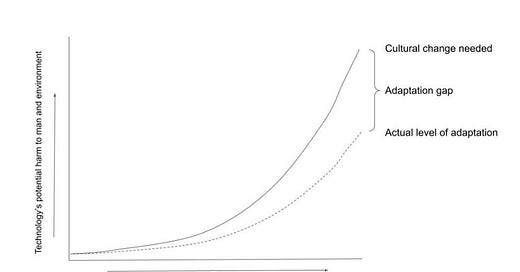Business leaders understand that it is essential that the culture of the corporation fits the market and wider context the corporation operates in. They also understand how the culture of the corporation needs to adapt and evolve with the changes in the business environment. Its corporate culture ensures the organisation can thrive. Can one draw a parallel to the development of national culture?
National cultures could be considered to be similar. The culture adapts and evolves to ensure in that given the nation’s geography, climate, history, economic conditions etc, elements of its culture like its shared values, beliefs, customs etc and even its technology evolve to support the development (even survival) of the nation.
For example, with urbanisation, with people living closer to each other and also travelling from urban area to urban area, diseases could spread much faster, requiring a greater emphasis on personal hygiene.
Beer was a solution to the problem of contaminated urban water in industrial Europe of the past
Hops added to beer helps to sterilise it. The practice of beer drinking could be said to partly be a way to hydrate safely in urban areas where water contamination was common.
Raj Patel, author of Stuffed and Starved suggests that the English practice of drinking tea with sugar and milk arose from factories, where bosses wanted workers to have a stimulating afternoon boost from caffeine in the tea, with sugar and nutrients to keep them productive.
The greater the risks from the technology and context the nation operates, the more the culture must evolve to manage the risks.
The problem with progress
Technological development then, has forced cultures to evolve: things like the steam engine, factories, railways, shipping, developments in money and global manufacture and transport have all impacted not just our daily habits but our values and attitudes, too.
It follows then, that the greater the capacity to extract minerals and harvest bio material becomes, so too should the capacity to ensure that exercising this capability does not degrade the land and ecosystems or indeed harm people. This capacity would manifest itself in the culture through laws, rules and practices as well as in values, paradigms and general attitudes.
The same is true for weapons. The greater the power of destruction, the greater the need to adopt peace practices as its risks, each use of the weapon increase.
The culture of a nation, then, needs to constantly adapt to the changing conditions it finds itself in. Sometimes traditions, beliefs, customs, that made part of the fabric of the culture prove to be dysfunctional as the context changes.
Does growing up in a capitalist society inculcate beliefs and values that might not be appropriate for the post-fossil world?
The big question
It could be argued too, that the economic system, where private companies represent the bulk of the production apparatus and money is the means of exchange in the relationship owner, employee, customer has shaped our values and beliefs.
How wide is the gap between what technology and other circumstances demand in terms of culture and our present situation? This is the adaptation gap.
You could ask yourself: for the culture that I live in, how appropriate is it for the times we live in? And how can values, practices and policy evolve?
It has to start from ourselves. Somewhere we have the wisdom to help guide our corporations, families, friends but we need to be anchored in the feeling of peace.
From this point, we can see back on the legacy of our forefathers, and into the future to create a legacy of peace for those who come after us.
We will be discussing this, more on the “how”, over the coming year.




